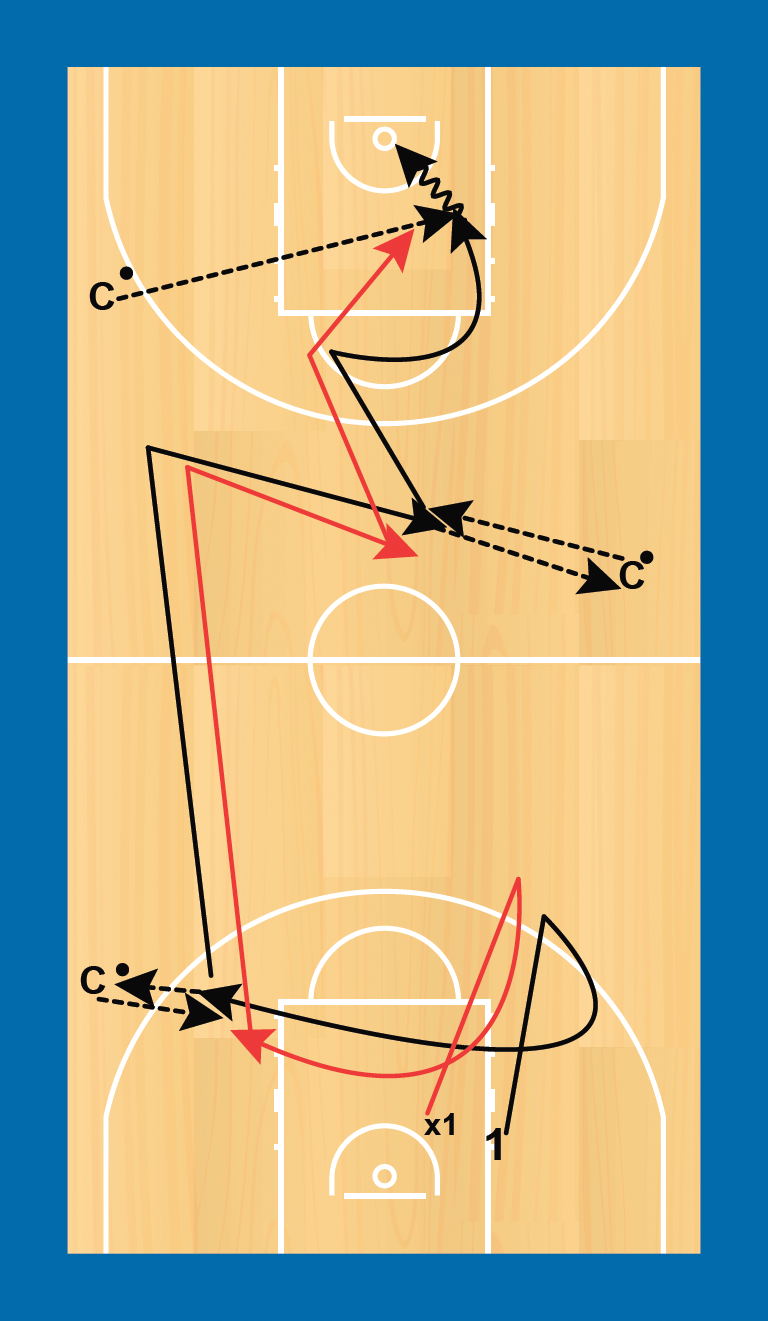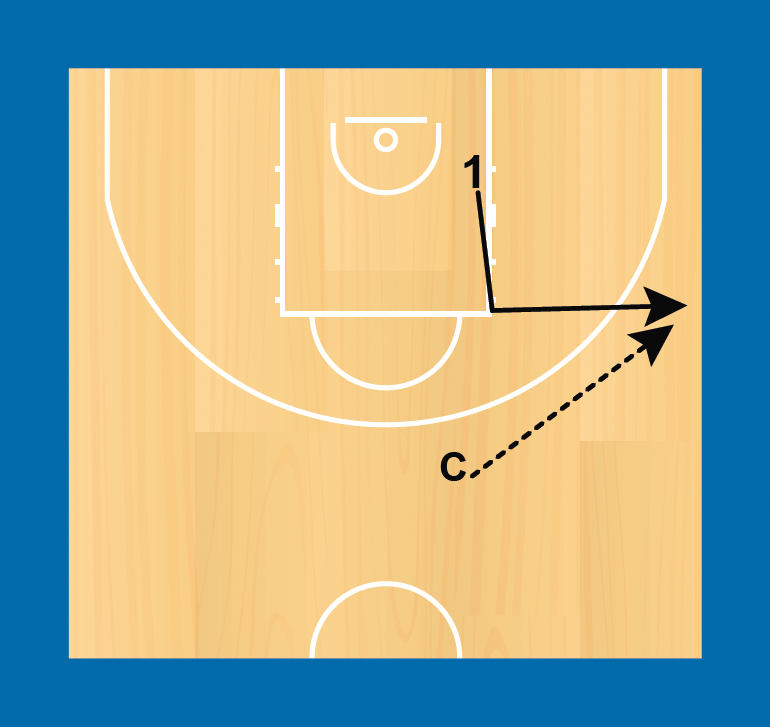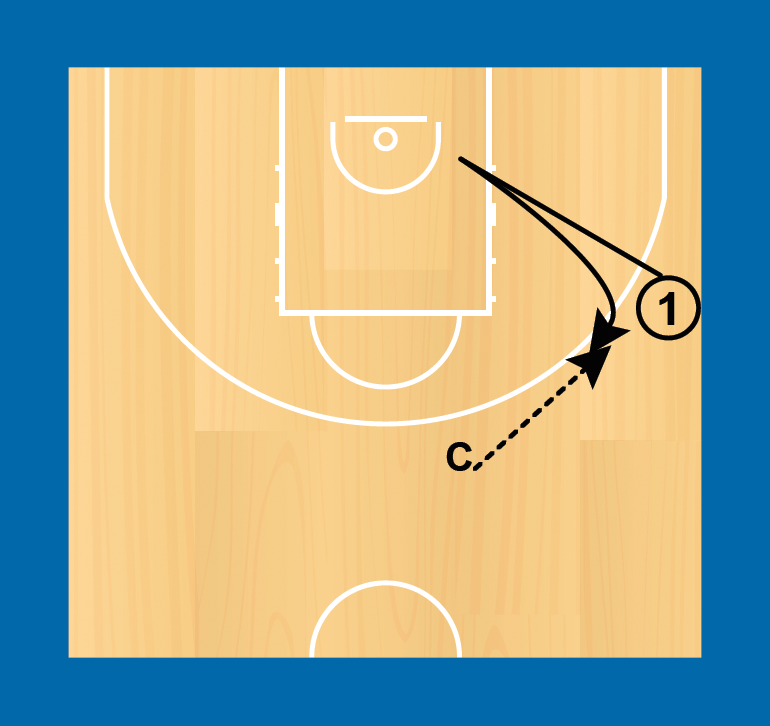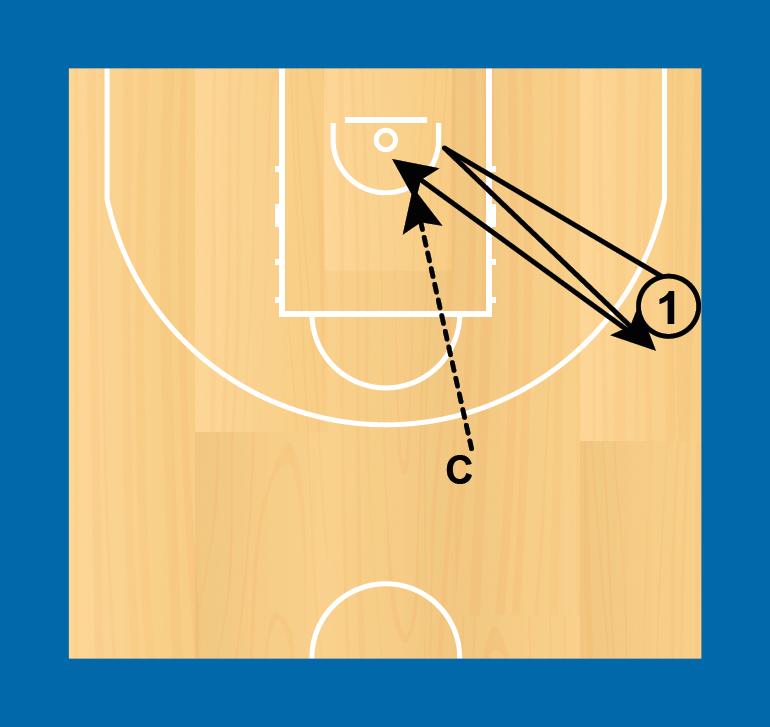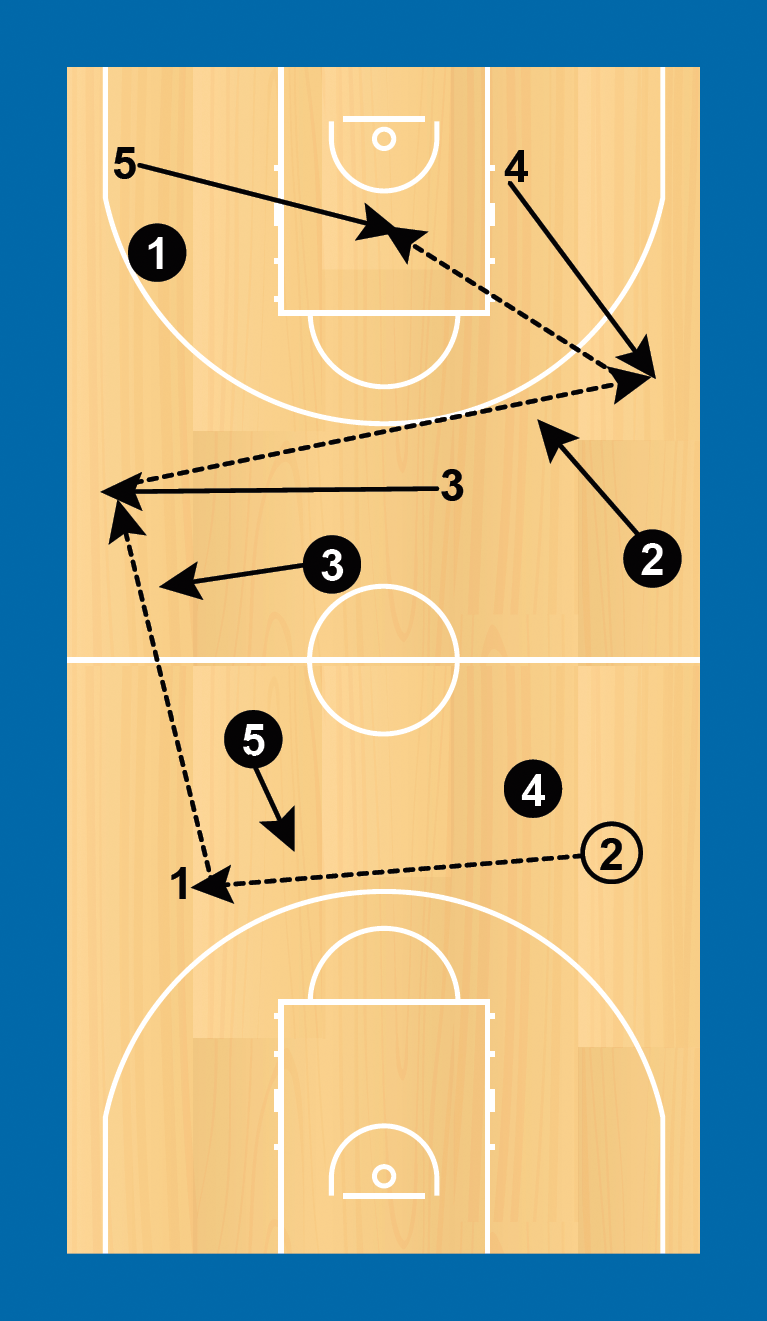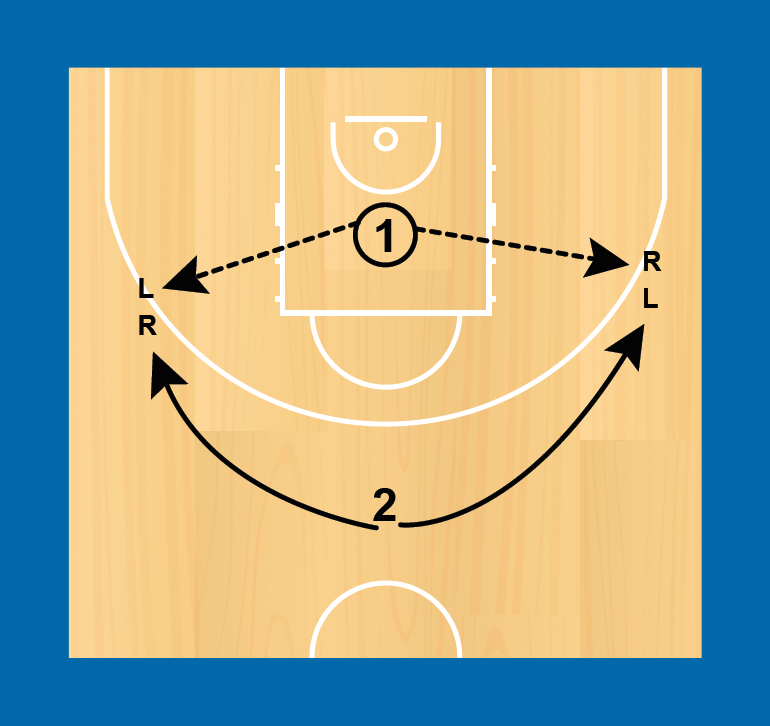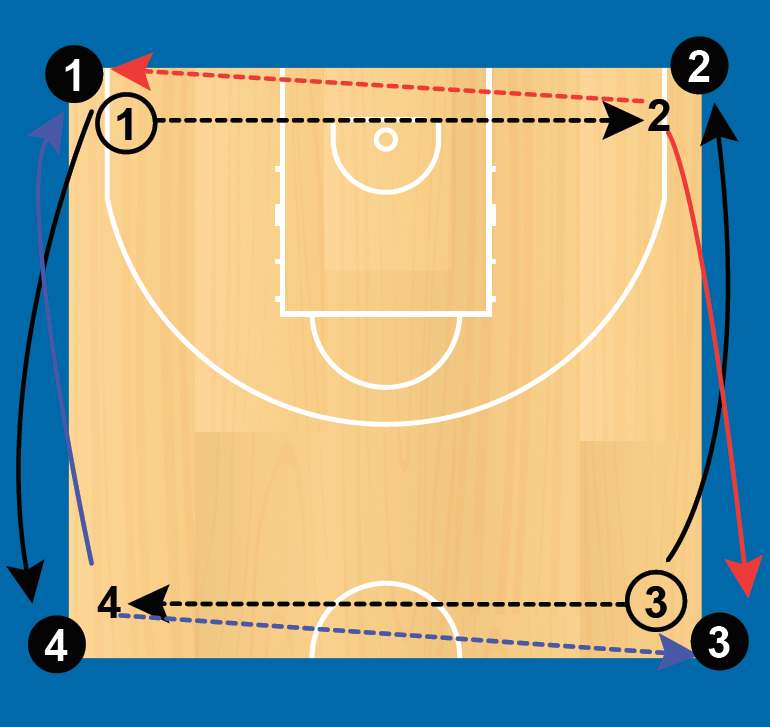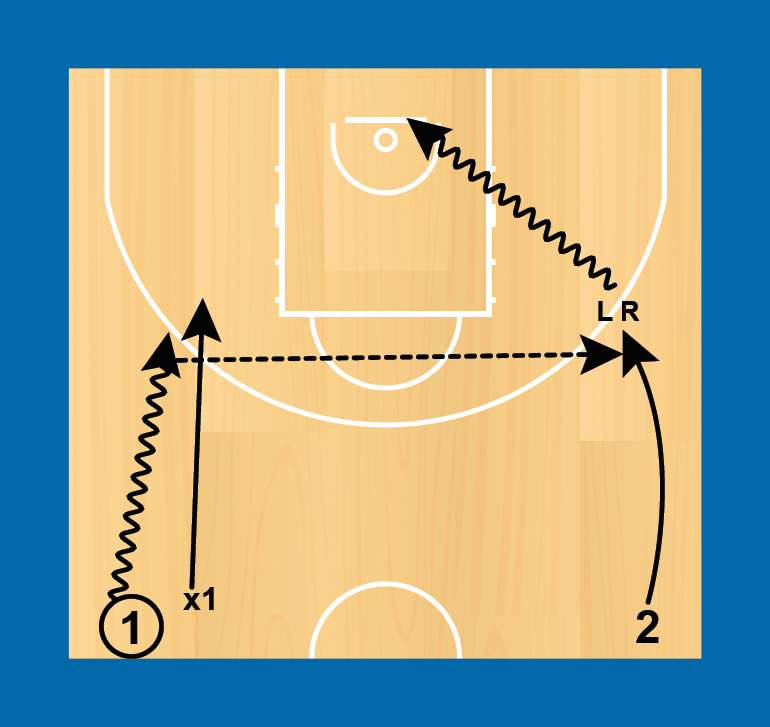Level 1
2.5.2 Fun activities to teach moving, passing and getting open
3 Passes Contested
- This is a contested 1 on 1 activity
- The offensive player leads to receive a pass from the coach. After catching it they pass back to the coach.
- The offensive player attempts to get open to receive a pass from the next coach. After catching it they return it to the coach.
- When the third ball is received, the offensive player plays to score
3 Leads
The athlete starts at the low post, facing the coach, and executes an “L-cut”, catching the ball, and then faces the basket. After squaring up” they pass the ball back to the coach.
The athlete then executes a “v-cut”, curling at the end of the cut, so that their chest faces the coach as they catch the ball. This “banana cut” also has the effect of moving in front of the defender. After catching the ball, they face the basket and then pass the ball to the coach.
Lastly, the athlete makes another “v-cut” and as they get to the 3pt line they plant their outside foot, give a catch fake (put their hands up as if to catch the ball) and then cut “back door”. The coach passes the ball to them for a no dribble lay-up. The first step on the backdoor cut is with the foot closest to the basket.
Add a defender and play 1v1 after the third “catch”.
Tallyball Touchdown
The aim is to complete a minimum number of passes (e.g. six consecutive passes) and then to pass the ball to a team mate in the keyway.
One point is scored when the player in the touchdown area receives the ball after the minimum number of passes. After a point is scored the opposing team has possession from the keyway.
A new count starts each time there is a fumble, or interception. No dribbling, no travelling, no fouling. If violation occurs, possession is taken from the side line.
You can also set a maximum number of passes and if a score is not made within that number, the defenders get the ball.
Catch and Square Up
Two players, with one ball, start facing each other. The player without the ball leads to one side and catches a pass, landing in a “stride stop”. The first foot to land should be the one closest to the passer, and they “square up” to face the passer.
After stopping they pass the ball back and lead to the other side.
Corner Passing
Athletes pass the ball and then cut to the other corner to receive a pass and make a pass. The coach can designate the type of pass to be made.
A team of 8 players should be able to do the activity with 4 balls.
With young players, the player receiving the pass should cut toward the ball (to reduce the distance of the pass). They should stop before making their pass but can progress to passing on the move.
1x1 + 1
An offensive player starts at half way and dribbles to the 3 point line. The defender may initially be “passive”, but should progress to exert “game like” pressure. At the 3 point line, they pass to the cutting team mate, who stops in a “stride stop” (twocount), before driving for a lay-up.
The activity should be done on both sides of the floor.
